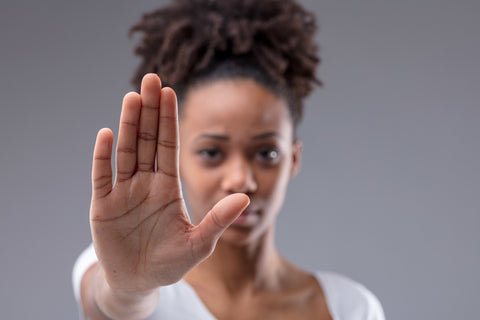Violence Against Women Is A Pandemic With No Vaccine On The Horizon
One in three women - more than one billion women worldwide - experience physical or sexual violence in their lifetime, usually by an intimate partner. This means that the victim could be your best friend, your little sister, you female colleague at work, or the woman sitting next to you on the bus. Or it could be you.
Violence against women and girls (VAWG) is a human rights violation, and the immediate and long-term physical, sexual and mental consequences can be devastating, even leading to death. It negatively affects women’s well-being and prevents them from fully participating in society, impacting them first, but also their family, their community and their country at large. VAWG is a hidden global crisis which knows no boundaries of geography or culture and is one of the most widespread violations of human rights. It is rooted in the gender inequality that women face through their lives from childhood to old age. This violence takes many forms, from well known examples like domestic abuse and sexual assault or harassment, to child marriage, sex trafficking, female genital mutilation and so called ‘honor’ crimes.
Today we celebrate the International Day for the Elimination of Violence Against Women, established by the United Nations in 1999. Unfortunately, when this day arrives we always seem to be facing the same issues as in the past. New year, but same old story. Or even worse. Yes, because we are in 2020, the year of coronavirus, lockdowns and quarantines, in which the world outside seems more dangerous than usual, and the best solution seems to remain barricaded at home with close relatives. The same close relatives who every year kill tens of thousands of wives, daughters and sisters in the world.

Since the outbreak of COVID-19, emerging data and reports from those on the front lines, have shown that all types of violence against women and girls, particularly domestic violence, has intensified. No country has been spared by the coronavirus pandemic, and while they implemented lockdown measures to stop the spread of the disease, violence against women saw an enormous increase in numbers. The government told us to stay home, that everything will be better that way. But this hasn't been the case for many people around the world: women with violent partners increasingly find themselves isolated from the people and resources that can help them.
From a spike in rapes in Nigeria and South Africa, increased numbers of women missing in Peru, higher rates of women being killed in Brazil and Mexico and overwhelmed charitable organisations in Europe: the pandemic has aggravated the plague of sexual violence. Globally, 243 million women and girls aged 15-49 have been subject to sexual and/or physical violence perpetuated by an intimate partner in the previous 12 months. This number is likely to increase as security, health and money worries heighten tensions, and strains are accentuated by cramped and confined living conditions. According to the charity organisation MSI Reproductive Choices, the UK alone has seen a 33% increase in domestic violence reports. These figures form part of a 20% increase in overall safeguarding concerns during the first two months of lockdown.
The UK government has repeatedly said it would prioritize protection and support for women and girls experiencing violence. It has allocated dedicated funding to support women experiencing violence and organisations providing support services, and the Home Secretary Priti Patel even launched in April the campaign #YouAreNotAlone, aimed at raising public awareness about domestic violence and encourage those experiencing abuse to seek help. But this is not enough.
Hillary Margolis, senior women’s rights researcher at Human Rights Watch said: “The pandemic has exposed longstanding flaws in the UK government’s approach to domestic violence. Erosion of support for specialist domestic abuse services was already a national crisis, and this is a critical moment for the government to demonstrate commitment to long-term investment in these services for every woman and girl.”

What to do if you are a victim of domestic abuse
Domestic abuse, or family violence, is a violent, abusive or intimidating behaviour in a relationship. There are many types of domestic violence, including emotional, sexual, social, financial, spiritual and physical abuse. Domestic violence can happen to anyone, and anybody can be an abuser. If you’re currently dealing with this sort of issue, getting help and support is the first thing to do. Do not wait for an emergency situation to occur, find help now.
If domestic abuse is happening to you, it's important to tell someone. If you're a victim in the UK, or know someone who is, and there's an emergency that's ongoing or someone's life is in danger, call 999 now or report this in the safety of your local police station. The Police’s first priority is to protect you and any children you may have. On the government website you can find organisations who can help you and give you advice about domestic abuse.
How can you keep yourself safe? Making a decision to leave a situation where you feel unsafe may be hard and scary. But don’t forget you are not alone. If possible, talk to someone you trust, such as a friend, counsellor or a relative. You can also go to a refuge, which is a place where you can seek temporary housing and where you will be helped with a plan for longer-term accommodation.You can find guidance on how to get help during the coronavirus outbreak here.
If someone is hurting you, or threatening to hurt you, it can be hard to maintain your self-confidence or feelings of self-worth. You might even want to blame yourself. But always remember that it’s never okay for someone to hurt you or threaten to hurt you.
Written by Miriam Tagini


Leave a comment